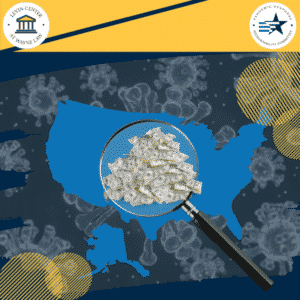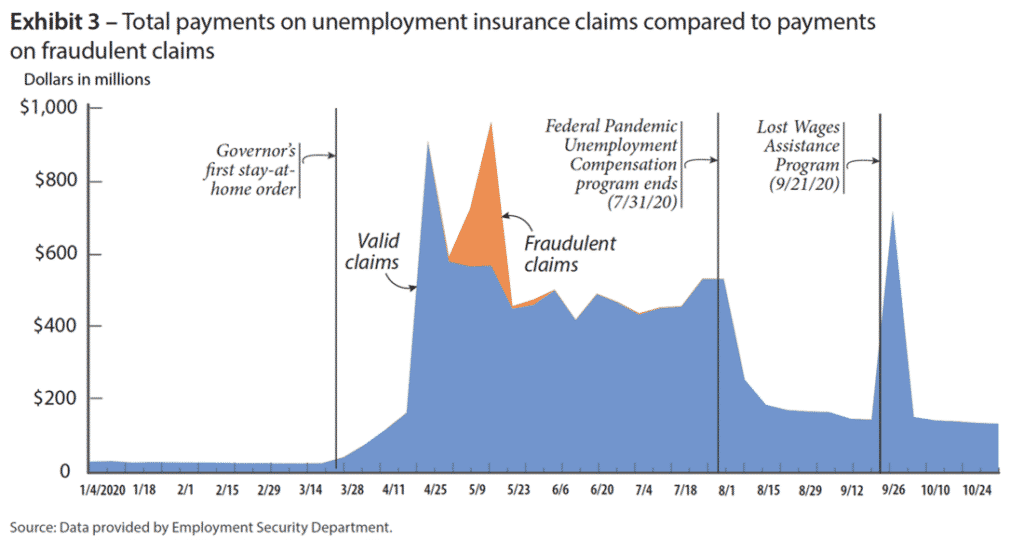Join our webinar on March 15, 2022 at 3:00 p.m. EST entitled “Pandemic Response and Oversight: Transparency, Finding Facts, Lessons Learned” co-hosted with the Pandemic Response Accountability Committee (PRAC). To get more insight on what the webinar will cover, read our below blog post!

Ensuring transparency and accountability in the pandemic response requires facts. Here’s where to find them.
The pandemic triggered a government response of unprecedented cost and societal reach. Now many are asking how well all that money was spent and whether those policies worked. States across the country are providing data that can help lawmakers and the public assess our pandemic response and lay a foundation for better policies in the future. This post offers data, resources, and examples of how pandemic oversight is uncovering problems and yielding important insights about America can improve its response to the next public health crisis.
The Pandemic Response Accountability Committee (PRAC) database is collecting reports, investigative results, and agency plans on pandemic response from around the country. Lawmakers anywhere can review this information to better understand their state’s pandemic response and compare it to that of other states. They can delve into unemployment insurance, government contracting, the transparency of public health data, and other issues. The Levin Center can help empower state lawmakers with tips on how to leverage the information compiled by PRAC, work with other state and federal partners, and execute in-depth, credible investigations that bring the public the information it deserves.
Unemployment Insurance
Fraud and customer service. These two topics are investigative priorities for unemployment insurance systems in any state. PRAC has reports on combating unemployment fraud and improving system processes for eligibility, customer service, and program gaps. A state legislator seeking to conduct oversight into their state’s unemployment system has the tools to find the facts and implement recommendations. Call the UI director into a hearing, examine key contracts that were supposed to improve service delivery, and ask auditors to examine outcome measures and the performance of these contracts. Then, use the results of these fact-finding endeavors to improve unemployment insurance efficiencies and combat fraud.
Example: The Washington State Auditor published a report on unemployment benefit programs and how delays and improper payments happened throughout the pandemic. This report details how stolen personal information was sold online enabling fraudsters to steal unemployment insurance dollars, and how unemployment specialists were overwhelmed with requests for assistance at the start of the pandemic. The report’s recommendations cover ways to better combat fraud and improve customer service with improved detection of suspicious claims and hiring more staff to help improve service access. The agency responded and thanked the auditor for its collaborative approach.

Financial Management of Relief Funding
The American Rescue Plan (ARP) and other recovery funds can be difficult to track, especially for the public. PRAC has several reports now online examining how federal funding is being spent in states responding to the pandemic. A state legislator can leverage the power of their office by holding committee hearings, using appropriations mechanisms like boilerplate language, and asking the auditor for reports on recovery funding.
Example: The Missouri State Auditor published a report on ARP funding for pandemic recovery. This report details how much money Missouri is receiving from the federal government, where the funding can be used, and status of the spending. The appendices include tables detailing where and how much funding has been disbursed, plus how much is still in the fund balance.
Data Transparency and Completeness
Louisiana and Delaware both have special audit reports on pandemic data collection covering testing, contact tracing, hospitalizations, and deaths. Recommendations include a weekly e-newsletter with the most recent data, implementing an online chat function on the website to help users find relevant data, and developing processes to target messaging for high-risk populations like the elderly. A state legislator could pick up several of these recommendations, see if the facts raised in these states are also present in their own state, and then push for the adoption of similar measures to improved public health data transparency.
Upcoming webinar from PRAC & Levin Center
For more information on resources at PRAC and how the Levin Center can help state legislatures seeking enhanced pandemic spending oversight, be sure to RSVP for our upcoming virtual panel on March 15th, the Tuesday of Sunshine Week. We hope you can attend!


